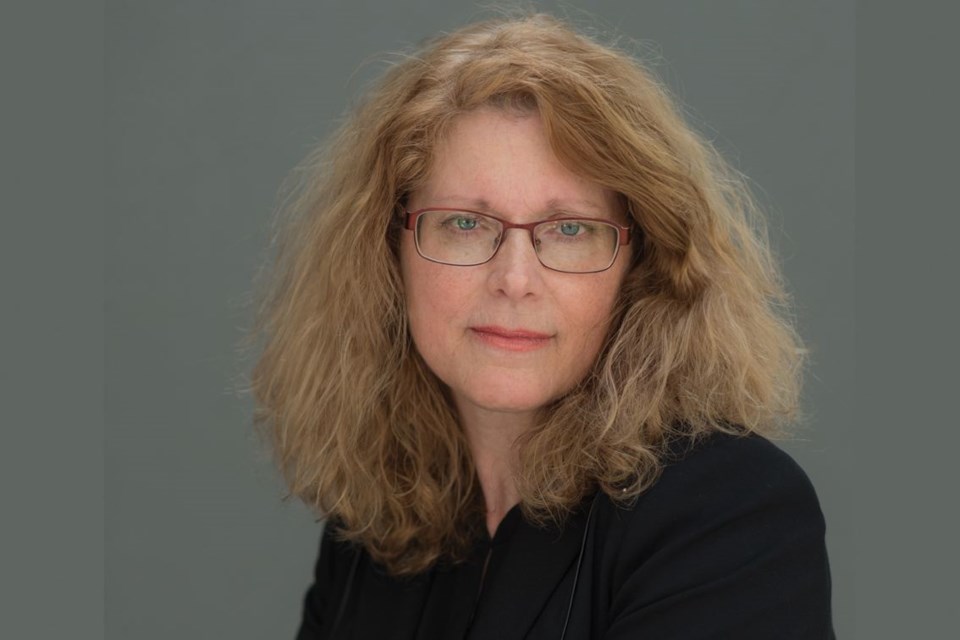The forestry sector can play a key role in creating a sustainable future that makes better use of leftover material, converting it to alternative fuel sources.
Susan Wood-Bohm was the keynote speaker at UNBC's Doug Little Memorial Lecture Thursday night, named BioCleantech: New Opportunities for Canada's Forest Sector.
"BioCleantech which is the concept of using biological carbon - so carbon that comes from agriculture or forestry, or municipal waste, organic stream - to help us offset the carbon that comes from fossil fuels in a way that helps us to reduce our net greenhouse gas emissions in the country," Wood-Bohm explained before her presentation.
That's one piece of Canada's unique greenhouse gas profile, she said, that can focus on three key areas to meet its emissions targets.
"Those things are based on the fact we have a very large landmass so to get goods, services and people from one end of the country to another generates a huge amount of transportation emissions," said Wood-Bohm, as well as distributed heating models and ways to address industry demand for process heat.
"We're looking for ways to heat ourselves up and we have very large space heat demands and there's some approaches that we can use some of which Prince George actually leads the country in," she said, pointing to UNBC's distributed heating model that connects its buildings to the wood pellet plant.
"That (heating system) works incredibly well, not only in a fairly small application which is what (is) appropriate here, but in other places around the world we have cities that heat 200,000 plus homes using distributed energy," Wood-Bohm said.
As a resource-based economy, heavy industry creates large demand for process heat. That's the kind of heat needed to get the oil out of the oil sands, she said, or the heat needed to make cement or in steel manufacturing.
"We can address all of those needs with different biomass technology," said Wood-Bohm, executive director of Emissions Reduction Alberta's Biological GHG Management Program,
Sustainably sourced biogenic carbon from municipal wastes, agriculture and forestry could play a critical role, she said, while also supporting rural economies.
And, linking big data, GIS, drones and other high-tech tools to the drive for non-fossil carbons brings both fresh opportunities and potential risks for forest ecosystems, timber communities and traditional pulp and dimensional labour markets, the UNBC press release noted.
For her Prince George audience, Wood-Bohm said she was "pretty heavily focused" on residue, like slash piles or mill waste.
While she believes the forestry community is ahead of the game and makes efficient use of mill waste for electrical energy generation, some companies have said they're open to other approaches.
Locally, she said Canfor has "a really exciting opportunity" through a recent agreement with Licella to manufacture a biocrude and potentially make higher value use of the residue steam.
"That would be using waste residue to manufacture something which looks and feels and behaves just like crude oil and can be refined in a conventional refinery to a suite of products including high-value commodity chemicals and fuel," she said.
The proposed low-carbon district energy system for Vancouver offers a good example of the discussions that are happening, she said, calling it a neat idea with potential benefits that also presents real challenges.
"I don't want to paint this with too rosy a tint, trying to get the economics and the enabling policies in place are always a bit of a challenge," said Wood-Bohm, who is encouraged that the province and country are making long-term commitments to carbon taxes or cap-and-trade.
"Financing is really difficult to get when the policy appears to change," she said. "We're seeing the establishment of what should be long term policy signals and that then allows the company to have more financial flexibility to get the investments that they need to make change."
She said the talk is timely as countries met in Morocco in this month following up on the United Nations Climate Change Conference in Paris earlier this year.
"We've got this backdrop now of a global community that accepts that climate change is real and we need to do something about it if we don't want to deal with catastrophic impacts," she said, adding she especially thinks a younger generation - like UNBC students at her lecture - need to be part of the discussion.
"They come with fresh ideas and a creativity that we sorely need and so I'm always happy to talk about what our work has shown as examples and to get their perspectives on how to move forward."



